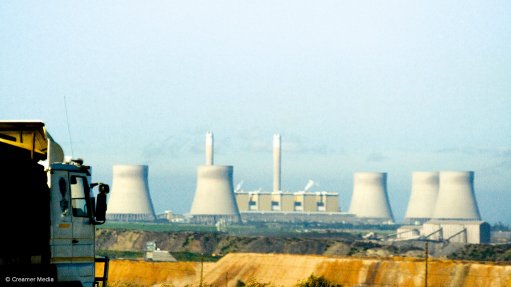
Photo by: Duane Daws
State-owned power utility Eskom’s increasing water consumption in coal-fired plants will provide growth momentum for sub-Saharan Africa’s industrial water treatment chemicals (WTC) market, a study by Frost & Sullivan has revealed.
Eskom’s commissioning of the Medupi and Kusile coal-fired power stations, which would add 9 564 MW to the national grid, was expected to increase water consumption levels to 67 200-million cubic metres a year and heighten the demand for chemicals by an average of 7.3% a year by 2018.
The expenditure on WTCs, which was $19.6-million in 2013, would increase to $27.9-million in 2018, Frost & Sullivan outlined in the 'Analysis of the Water Treatment Chemicals Market in sub-Saharan Africa’s Power Generation Industry' report.
And, while South Africa currently offered the highest growth opportunities to industrial WTC manufacturers owing to the prevalence of coal-fired power, financially constrained Eskom faced numerous commissioning delays and engineering challenges, exacerbated by the escalating costs of its ongoing new builds.
Eskom’s difficulty in financing the current coal-fired projects in its pipeline was further adversely affected by the global trend towards cleaner energy, Frost & Sullivan pointed out.
“Participants should penetrate countries in sub-Saharan Africa that are witnessing rapid urbanisation and manufacturing developments to widen their market potential,” Frost & Sullivan chemicals, materials and food research analyst Doreen Nabaho said in a statement on Tuesday.
“Markets outside South Africa will be especially lucrative as there is limited competition and no additional government restrictions, such as broad-based black economic empowerment, which has been a major obstacle for international water treatment companies.”
Nigeria had emerged as the next frontier for phenomenal growth, with the nation aiming to commission ten gas-fired power plants, which would double the current national output and result in an increased need for WTC.
“The high yearly rise in gross domestic product over the past few years and the recent privatisation of the power generation sector, is expected to lead to phenomenal capacity expansion initiatives in Nigeria over the next five to ten years,” Nabaho said.